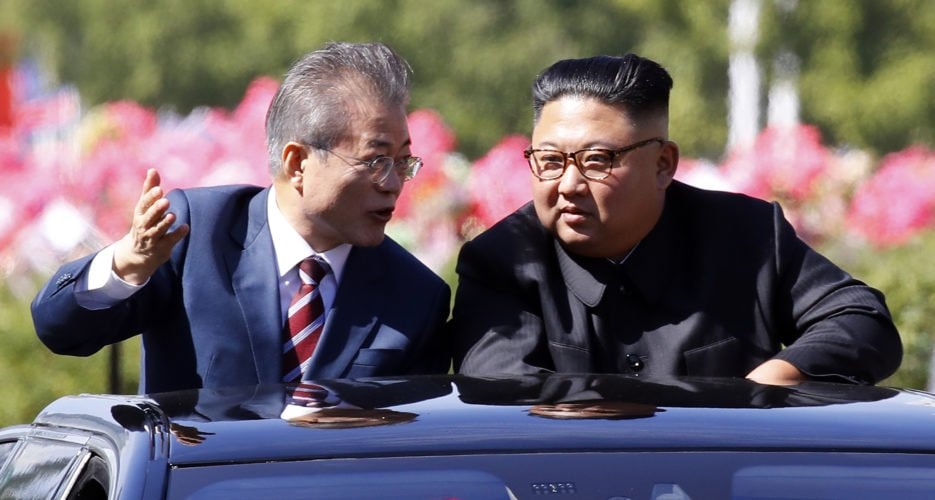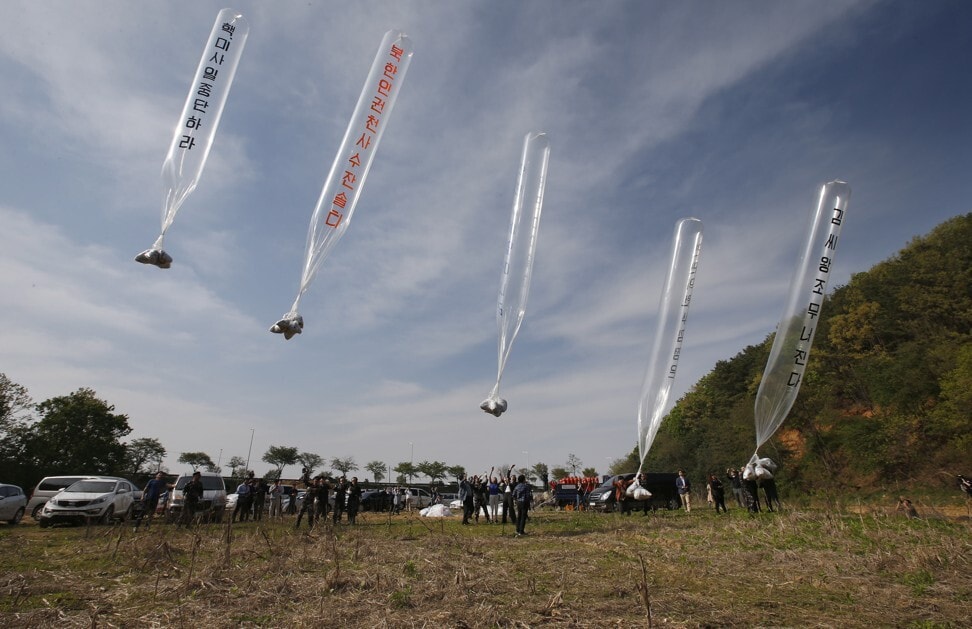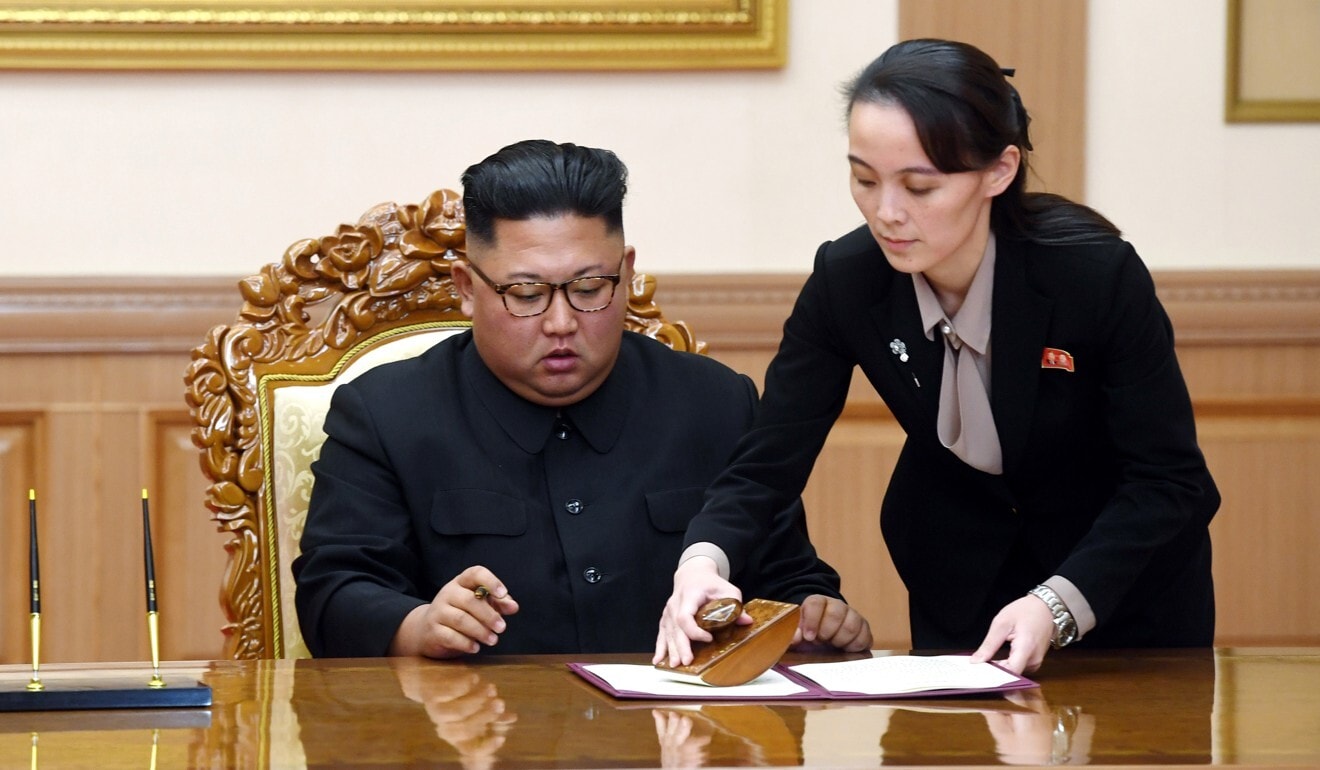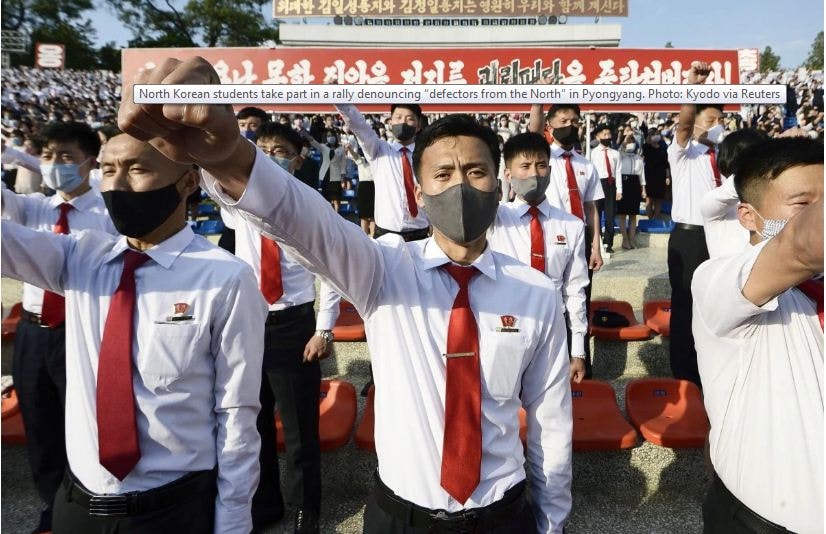Inter-Korean relations before a new wave
(Baonghean.vn) - In theory, this is the time for the two Koreas to "hand in hand" celebrate the special day of June 15 - the time marking the 20th anniversary of the first inter-Korean summit in 2000. However, Pyongyang's new moves are deepening tensions, right at the time when President Moon Jae-in is hoping to warm up the relationship. But why does North Korea want to increase the "crisis" with South Korea?
The "thaw" effort failed
“This is a sign of hostility toward our people. We have come to the conclusion that there is no need to sit face to face with the South Korean authorities, and there is no issue to discuss with them,” the statement said, quoted by the North Korean state media KCNA. All cross-border communication lines were completely cut off by North Korea at noon on June 9, including the line at the inter-Korean liaison office and hotlines between the two countries’ militaries and presidential offices. This will be the first step in the determination to completely shut down all means of communication with South Korea and eliminate unnecessary ones. And it seems that efforts to ease tensions between the two Koreas over the past two years have completely failed.
 |
| After efforts to warm up in 2018, inter-Korean diplomatic relations have shown signs of cooling down since 2019. Photo: Reuters |
The decision was made by Kim Yo-yong, the younger sister and most trusted aide of leader Kim Jong-un, and Kim Yong Chol, the former director of military intelligence. For North Korea, the hostile act of sending leaflets by South Korea is unacceptable and “will have to pay a heavy price”. The move by both South Korea and North Korea shows that inter-Korean relations are facing a new storm and North Korea is increasing pressure on the South Korean government to ensure compliance with its promised commitments. A few days earlier, North Korea criticized and threatened to close the Inter-Korean Liaison Office and implied that it would take other tough measures if South Korea did not take action to stop defectors from sending anti-North Korean leaflets in the border area between the two countries.
Leaflet distribution has long been a source of tension between the two Koreas. However, instead of responding immediately to North Korea’s warnings, the South Korean government has stopped at statements that it will push for bans on illegal leaflet distribution. Of course, North Korea sees South Korea’s response as insincere, “irresponsible,” and “hostile.”
Professor Lim Eul-chul, director of the ICNK Center at Kyungnam University, said: South Korea has acted too slowly to stop the leafleting. For North Korea, the release of anti-Pyongyang leaflets is a sign that South Korea views North Korea as an enemy, and accordingly, Pyongyang has declared that it will treat Seoul as an enemy in response. This also means that, in the worst case, South Korea will not be able to avoid armed clashes with North Korea.
 |
| North Korea claims that South Korea failed to stop defectors from spreading leaflets in the border area between the two countries. Photo: EPA |
Source of the outbreak
The leafleting incident actually violated the September 2018 Inter-Korean Joint Declaration, which aimed to prevent all hostile acts. However, cracks in the inter-Korean relationship had appeared earlier, especially since the failure of the US-North Korea Summit in Hanoi in February 2019, and the deadlock in denuclearization negotiations between North Korea and the US. Some experts believe that North Korea may be deliberately creating tension to strengthen internal unity, or making more significant provocations in the face of persistent sanctions from the US.
Pyongyang has continuously shown a cold attitude towards Seoul such as: starting a short-range missile test campaign, rejecting South Korea's rice aid proposals, dismantling South Korea's infrastructure at the Mount Kumgang tourist area, criticizing South Korea's military exercises... With that approach for more than a year, Pyongyang's harsh criticism of South Korea in the leafleting campaign along the border area may just be part of North Korea's strategy targeting Seoul. In other words, the leafleting is the catalyst and justification for the long-honed anti-South Korea campaign, which is and will be public in the coming weeks.
By increasing pressure on the South Korean government, Pyongyang hopes to maximize the opportunity to push Washington out of Seoul's priority, thereby satisfying Pyongyang's interests. In addition, to explain why North Korea is pursuing a policy of high tension with South Korea at this time, it cannot be ruled out that the reason for this new "anger" is to divert public attention to the growing economic difficulties in North Korea, the risk of the Covid-19 epidemic spreading throughout the country, or rumors about the health of Leader Kim Jong-un.
 |
| In North Korea's latest statement, Kim Yo-jong, the younger sister of leader Kim Jong-un, plays an important role. Photo: AP |
Moreover, if inter-Korean relations do not improve in the coming weeks and months, it will become an excuse for the North Korean military to conduct missile tests and military exercises. In addition, it will increase the momentum for North Korea's bold missile development, aiming to realize Kim Jong-un's December statement that the world will see a new strategic weapon from North Korea in the near future.
Finally, the role of Kim Yo-jong, the younger sister of North Korean leader Kim Jong-un, in the increasingly tense relations between the two Koreas should not be overlooked. This is the third statement she has issued this year. Kim Yo-jong’s recent tough statements towards South Korea are in stark contrast to her friendly image when she visited South Korea for the 2018 Winter Olympics.
Leif-Ericf Easley, an expert from Ewha University in South Korea, said that Kim Jong-un seems to be trying to raise his sister's political status through his tough statements, placing her in the top group of officials and being able to make key decisions. Observers speculate that Kim Yo-yong may have become the "second most powerful person" in North Korea.
A difficult future
Although the two Koreas have not been in contact with each other at the Kaesong Liaison Office since early January 2019 due to the Covid-19 pandemic, Pyongyang stopped answering all calls from Seoul via the hotline on June 8. However, the Moon Jae-in administration will soon take new steps to ease tensions between the two Koreas.
 |
| Pyongyang students took to the streets to protest the distribution of leaflets. Photo: Reuters |
Despite Pyongyang's change of stance, the Blue House has continued to maintain composure in the face of it, effectively turning the situation around whenever necessary. Over the past several months, the Moon administration has consistently shown Kim Jong-un its seriousness in the relationship, such as: proposing the United Nations to lift sanctions on North Korea, Seoul's strong efforts to quell rumors about the health of leader Kim Jong-un in the last days of April...
However, with the heavy criticism, it is clear that North Korea's anger with Seoul is unlikely to subside anytime soon. Kim In-tae, an analyst at the Korea Institute for National Security Strategy, predicted: "The breakdown in inter-Korean relations will not dissipate as quickly as expected. This makes bilateral diplomacy more difficult. Tensions between the two sides continue to linger."


